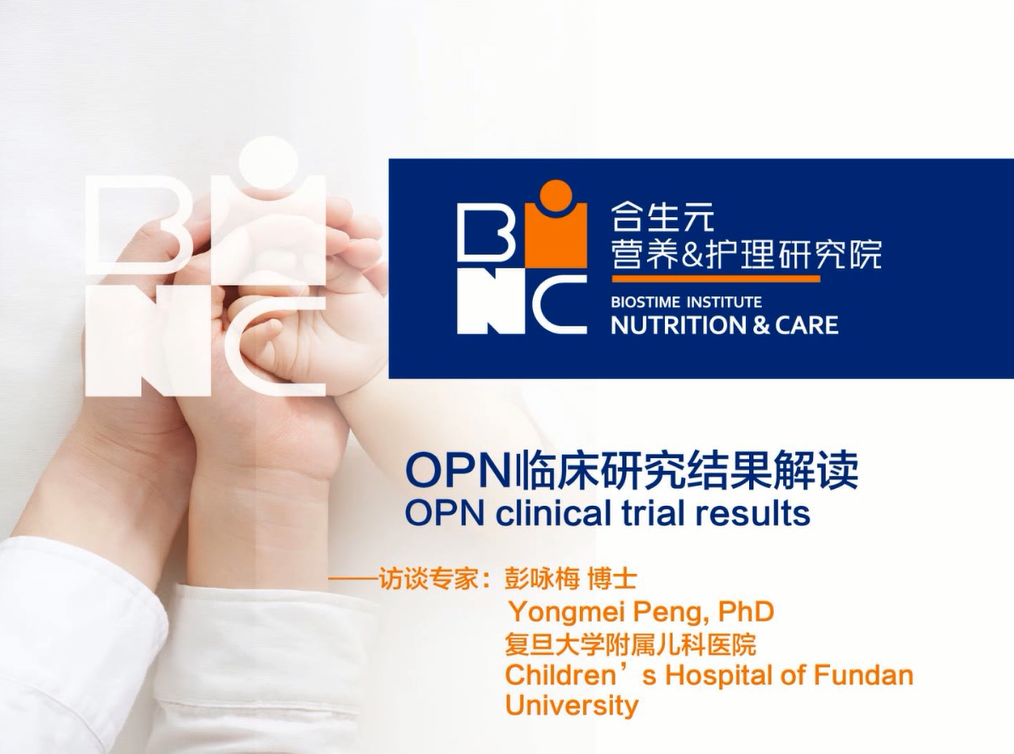Probiotics is a hot research topic at home and abroad, and has been widely used in people's daily life. For example, probiotics are added in food, medicine and skin care products. As a leading enterprise of probiotics, Biostime has been continuously investing in the innovation and research of probiotics products. BINC initiated a study of the effect of probiotics on the intestinal and immune systems of Chinese infants. The result was recently published in the journal Beneficial Microbes.

This is a randomised, double-blind, placebo-controlled study. The leader site is the Shanghai First Maternity and Infant Hospital. The study enrolled 132 infants (3.5-6 months). They were randomised to receive either probiotic supplement (n=66) which contain Bifidobacterium infantis R0033, Bifidobacterium bifidum R0071 and Lactobacillus helveticus R0052 or placebo-supplemented (n=66) formula once a day for four weeks. Saliva samples and stool samples were collected for the detection of SIgA and microbiota analysis. And also the information about cry stool and AE we collected by diaries during the trial.

In the probiotics group, faecal SIgA levels remained similar between visit 2 (baseline; V2) and visit 3 (end-of-treatment; V3), but decreased in the placebo group. Changes in SIgA levels following treatment between the probiotic and placebo groups were statistically significant. Salivary SIgA levels increased in both groups, this trend was more pronounced in the probiotics than in the placebo group. There was no difference in microbiota composition or anthropometric parameters between groups. No serious adverse event was reported, and all adverse events were mild and unrelated to the product or study. Our results show that formula-fed infants receiving probiotics maintained higher faecal SIgA levels at the end of the four-week treatment period, suggesting a positive effect of probiotics on SIgA production. This study demonstrates the safety of this probiotic formulation in infants. Formula-fed infants may benefit from probiotics supplementation to sustain the development of mucosal immunity.
Link of the original research:https://www.wageningenacademic.com/doi/abs/10.3920/BM2019.0025
- BINC NEWS
-
INTERVIEW
-
-
15012020/06/30 00:00
-
78592016/05/20 13:53
-
78342016/05/20 15:48
-
- STUDY RESOURCES
-
-
108842019/01/01
-
88052019/02/28
-
81282018/10/31
-




